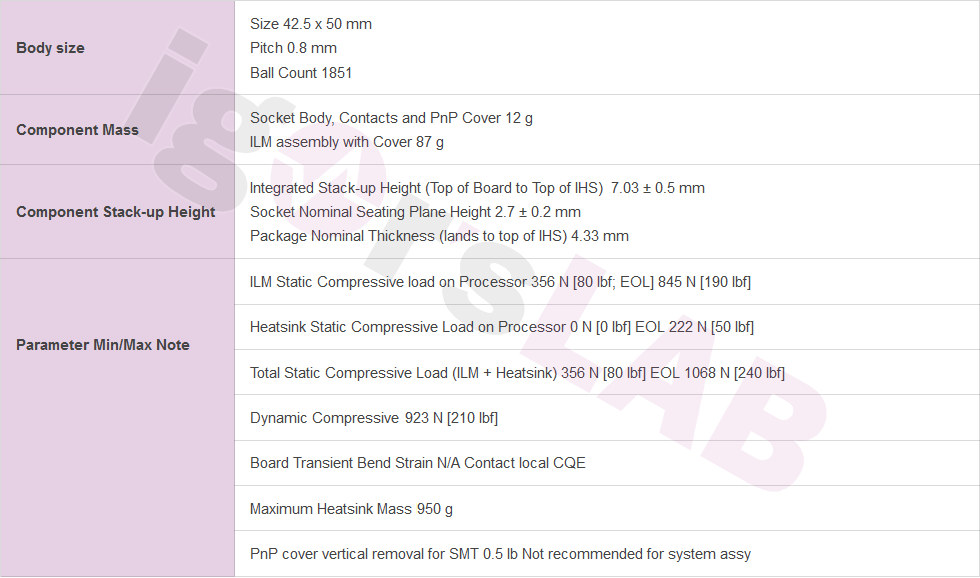Intel’s next-gen processors look great – but has the tech giant already set itself up to fail?
Bop it! Twist it! Socket!

Sign up for breaking news, reviews, opinion, top tech deals, and more.
You are now subscribed
Your newsletter sign-up was successful
Well, it looks like Intel’s Arrow Lake processors are really on the way, with an expected 2024 release date and some seriously impressive performance leaks. These are the ones to watch, folks; forget about Meteor Lake and the underwhelming Raptor Lake refresh expected later this year.
There’s a big problem with these incoming chips, though, and it’s probably not one that Intel can fix. German tech site Igor’s Lab recently leaked a wealth of information about both the Arrow Lake chips themselves and – more pertinently – the motherboard socket that will support them. Surprising nobody, it’s not the current LGA 1700 socket; instead, it’ll be the new LGA 1851 socket.
For anyone well versed in PC hardware, this presents an immediate problem: if you want to upgrade to one of these new chips (which will presumably be Intel’s 15000 series), you’re going to need a new motherboard – and probably a new CPU cooler, too. No backward compatibility here, I’m afraid. To make matters worse, if early LGA 1700 boards are anything to go by, the first round of Arrow Lake-compatible mobos will be expensive.
Opinion: Intel is already nursing a bullet wound to the foot, and it might be reloading the gun
This problem is, unfortunately, one of Intel’s own making. Team Blue has historically shifted through motherboard socket variations a bit faster than its main competitor AMD, but this is ridiculous; the LGA 1700 socket was only introduced a year and a half ago, in November 2021, whereas AMD used its own AM4 socket for six years before the introduction of AM5 in 2022.
What’s wrong with LGA 1700, then? Well, that chipset was the result of Intel trying to walk the line between backward compatibility and innovation; it was introduced with Intel’s 12th-gen Alder Lake chips (led by the flagship i9-12900K), which offered support for both DDR4 and DDR5 RAM, leading to an odd divide in the current lineup of Intel motherboards.
LGA 1851 will presumably be DDR5-only, and deliver another key advancement that should bring Intel up to speed with AMD’s AM5 socket: proper support for Gen5 SSDs. The AM5 socket already allows for dedicated PCIe lanes for the latest SSDs, while the LGA 1700 format requires such drives to ‘borrow’ PCIe x16 graphics lanes in order to support Gen5 storage.

In other words, Intel is now having to play catch-up because of its previous blunder, and anyone who already bought an LGA 1700 motherboard (and probably a new CPU cooler too) might feel a bit hard done by. On top of this, knowing that we’ll be getting a new socket next year makes it very hard to recommend buying a new Intel CPU right now, unless you’re lucky enough to have a bank account balance in the six digits.
Sign up for breaking news, reviews, opinion, top tech deals, and more.
Personally, I find it immensely frustrating that Intel has to shake up its sockets this often; I don’t want to buy a new mobo and cooler every other year, to be perfectly honest. Before I recently upgraded to an AMD Ryzen 7 7700X, I’d been using the same X470 motherboard from 2018, despite shifting through multiple Ryzen CPUs in that period.
It’s all the more annoying considering that Intel’s Arrow Lake chips look like they could be some of the best processors we’ve seen in years, offering some hearty overall performance improvements over the 13th-gen Raptor Lake along with a massive step up in integrated graphics performance.
Look, Intel. The Core i9-13900K was a great CPU. I loved it. While the Raptor Lake refresh chips sound a bit underwhelming, Arrow Lake looks to be a genuine leap forward – but can we maybe stick with LGA 1851 for four or five years, at least?

Christian is TechRadar’s UK-based Computing Editor. He came to us from Maximum PC magazine, where he fell in love with computer hardware and building PCs. He was a regular fixture amongst our freelance review team before making the jump to TechRadar, and can usually be found drooling over the latest high-end graphics card or gaming laptop before looking at his bank account balance and crying.
Christian is a keen campaigner for LGBTQ+ rights and the owner of a charming rescue dog named Lucy, having adopted her after he beat cancer in 2021. She keeps him fit and healthy through a combination of face-licking and long walks, and only occasionally barks at him to demand treats when he’s trying to work from home.